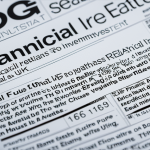Defining Digital Transformation in UK Automotive Manufacturing
Digital transformation in UK automotive manufacturing represents a comprehensive shift towards integrating advanced digital technologies to enhance production, innovation, and operational efficiency. Central to this transformation is Industry 4.0, a term encompassing interconnected digital systems such as cyber-physical systems, smart factories, and data analytics. The core principles include automation, real-time data exchange, and decentralised decision-making.
Historically, the UK automotive sector has embraced industrial revolutions progressively, with digital transformation emerging in response to global competition and shifting customer demands. This shift intensified as manufacturers adopted digital tools to optimise supply chains and improve production flexibility. Technology such as IoT devices, cloud computing, and AI-enabled analytics have become pivotal in enabling manufacturers to gain real-time insights and predictive maintenance capabilities.
Also read : How Might Electric Vehicles Revolutionize the UK’s Automotive Sector?
The drivers for digital adoption are multifaceted: increasing productivity, reducing costs, and adapting rapidly to market changes. Moreover, government initiatives and an ecosystem of technology providers have accelerated this digital evolution. As Industry 4.0 principles embed deeper, UK automotive manufacturing is poised to maintain its competitive edge by leveraging connected infrastructure and smart technologies to create smarter, more agile production environments.
Leading Digital Technologies Shaping UK Automotive Production
Digital transformation in UK automotive manufacturing hinges on the adoption of transformative technologies such as automation, artificial intelligence (AI), robotics, and Internet of Things (IoT). Automation drives significant improvements by streamlining repetitive tasks, thus enhancing production speed and reducing human error. Robots, integrated into assembly lines, perform precise and consistent operations that boost productivity and safety.
Have you seen this : How is artificial intelligence transforming UK automotive production processes?
AI plays a crucial role by analysing vast data from manufacturing processes to optimise decision-making. For example, AI algorithms can predict equipment failures before they occur, enabling preventative maintenance and minimising downtime. This predictive capability is a cornerstone of Industry 4.0’s promise to create smarter manufacturing systems.
IoT networks connect machines and sensors throughout production plants, facilitating real-time data exchange and seamless communication. This connectivity underpins smart manufacturing, allowing for dynamic adjustments during production to improve quality and efficiency.
Together, these technologies form the backbone of modern UK automotive production. Their integrated deployment supports more flexible, responsive factories capable of meeting evolving market demands while maintaining high standards of quality and cost-effectiveness.
Efficiency, Quality, and Cost Impacts of Digital Transformation
Digital transformation has substantially boosted production efficiency across UK automotive plants. Automation and AI-driven predictive maintenance reduce downtime, ensuring continuous operation and faster throughput. For example, real-time data from IoT sensors enables rapid detection of bottlenecks, allowing swift corrective actions that minimise delays. This optimises resource allocation and workflow consistency.
In terms of quality improvement, digital technologies enable tighter process control. Machine learning algorithms analyse production data to identify and prevent defects before they escalate. Such predictive quality assurance supports higher standardisation, reducing variability between vehicle batches. Smart manufacturing systems also allow customised adjustments mid-production to meet specific quality targets.
On the financial side, cost reduction stems from less waste, fewer errors, and optimised energy use. Robotics decrease reliance on manual labour for repetitive tasks, cutting labour costs and improving workplace safety. Additionally, digital inventory management streamlines supply chains, lowering storage overheads and mitigating material shortages.
In sum, the integration of Industry 4.0 technologies directly translates into enhanced output, superior product quality, and disciplined cost control—key factors maintaining the UK automotive sector’s competitive edge in a global market.
Workforce Evolution and Skills in the Digitised Automotive Industry
Digital transformation in UK automotive manufacturing has driven a significant workforce transformation, reshaping roles and skill requirements. As automation, AI, robotics, and IoT proliferate, routine manual tasks decline, while demand grows for specialised expertise in digital skills and system management. Workers are expected to analyse data, manage interconnected machines, and troubleshoot complex digital systems, reflecting Industry 4.0’s emphasis on techno-centric capabilities.
This shift necessitates robust reskilling and upskilling initiatives. UK automotive firms increasingly invest in training programmes targeting digital literacy, programming, and data analytics, enabling employees to adapt to evolving technologies. Such efforts help bridge the gap between traditional manufacturing skills and emerging digital competencies.
Employment trends reveal both opportunities and challenges: while some roles become obsolete, new positions in automation oversight, AI maintenance, and cybersecurity emerge. The sector aims to balance preserving experienced technicians’ knowledge with integrating digitally skilled newcomers, fostering a hybrid workforce.
Ultimately, the workforce evolution reinforces the critical link between successful digital adoption and human capital. As UK automotive manufacturing embeds Industry 4.0 technologies, continuous development of workforce capabilities ensures sustained competitiveness and innovation potential.
Workforce Evolution and Skills in the Digitised Automotive Industry
Digital transformation in UK automotive manufacturing demands significant workforce transformation. As automation, AI, and smart manufacturing systems take on routine tasks, roles increasingly require advanced digital skills. This shift challenges traditional labour patterns, necessitating comprehensive reskilling and upskilling initiatives to equip employees with competencies in data analysis, robotics maintenance, and AI system operation.
UK automotive companies respond by investing in tailored training programmes that bridge skill gaps. For example, workers are trained on IoT-driven machines and AI software interfaces to ensure seamless integration with automated production lines. These efforts help preserve employment by evolving job profiles rather than eliminating positions outright.
Employment trends reflect a rising demand for roles combining technical expertise with problem-solving abilities. Skilled operatives now monitor AI diagnostics and troubleshoot complex machinery rather than performing manual assembly. Consequently, workforce evolution in the UK automotive sector aligns strategically with Industry 4.0 principles, fostering a tech-savvy talent pool capable of supporting ongoing digital transformation and sustaining production quality and efficiency.
Defining Digital Transformation in UK Automotive Manufacturing
Digital transformation in UK automotive manufacturing signifies a fundamental shift driven by Industry 4.0 principles. This transformation integrates digitalisation deeply into production processes, creating interconnected systems that enhance flexibility, responsiveness, and efficiency. Core technologies such as IoT, AI, robotics, and automation enable real-time data flow and decentralised decision-making, which collectively elevate manufacturing capabilities.
Historically, the UK automotive sector adopted successive industrial revolutions, but Industry 4.0 marks a pivot towards smart manufacturing. It responds proactively to global pressures, such as increased competition and rapidly evolving customer expectations. These drivers have compelled manufacturers to embrace digital tools for optimising supply chains and adapting production in near real-time.
Key principles underpinning this transformation include pervasive data analytics, cyber-physical system integration, and seamless machine-to-machine communication. The resulting digital ecosystems facilitate predictive maintenance, quality control, and operational agility. Recognising these aspects clarifies why digital transformation in UK automotive manufacturing is not merely a technological update, but a comprehensive redefinition of how vehicles are designed and produced—with a focus on sustainability, innovation, and market adaptability.
Defining Digital Transformation in UK Automotive Manufacturing
Digital transformation in UK automotive manufacturing represents a strategic overhaul driven by Industry 4.0 principles. This shift integrates advanced technologies such as IoT, AI, and robotics into manufacturing processes, creating highly connected and flexible production environments. At its core, digital transformation means moving beyond traditional mechanisation to embedded, data-driven systems that enable real-time analytics, predictive maintenance, and decentralised decision-making.
Historically, the UK’s automotive sector has evolved through successive industrial waves, but the latest digital push responds to distinct drivers: global competition, customer demands for customised vehicles, and the need for operational agility. These pressures accelerate the adoption of smart manufacturing tools that improve production speed and quality while reducing costs.
Key defining technologies of digital transformation include cyber-physical systems that synchronize physical machinery with digital controls. IoT networks provide constant data flow between devices, while AI algorithms interpret this data to optimise workflows. Collectively, these elements embody Industry 4.0’s promise of increased efficiency, resilience, and innovation within UK automotive manufacturing, enabling the sector to sustain competitiveness on an international scale.







